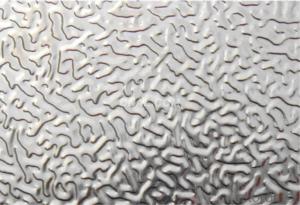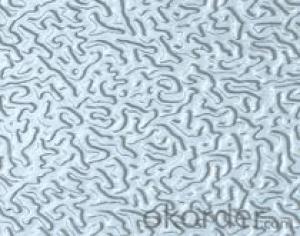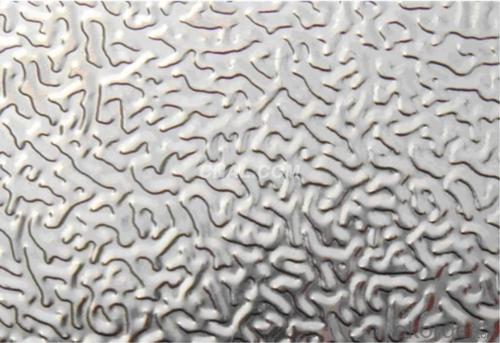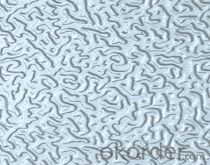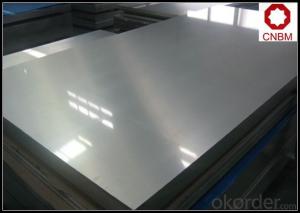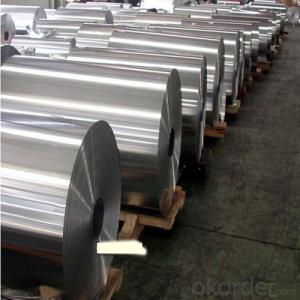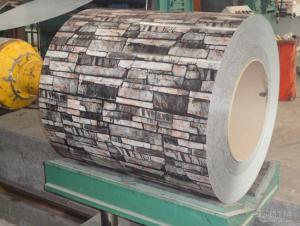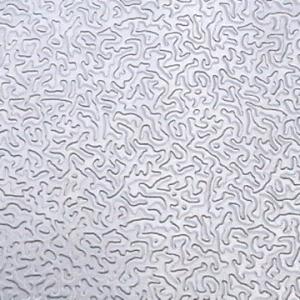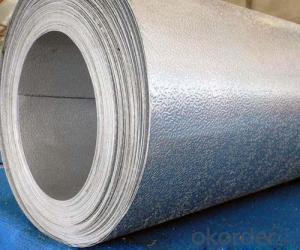Lennox Embossed Aluminum Stucco for Air-Conditionary Coils
- Loading Port:
- Shanghai
- Payment Terms:
- TT OR LC
- Min Order Qty:
- 4 m.t.
- Supply Capability:
- 100000 m.t./month
OKorder Service Pledge
OKorder Financial Service
You Might Also Like
1.Structure of Embossed Aluminum Stucco for Air-Conditionary :
Embossed Aluminum Stucco for Air-Conditionary is widely used in the manufacturing of air-conditionary.Embossed Aluminum Stucco for Air-Conditionary is popular in Africa, Middle East and America markets
2.Main Features of the Embossed Aluminum Stucco for Air-Conditionary:
• Beautiful parten
• High manufacturing accuracy
• High strength of extension and yield
• Well packaged
• No marks, no scratch, no excessive oil
3. Embossed Aluminum Stucco for Air-Conditionary
Alloy: 1050, 1060, 1070, 1100, 3003, 3004, 3005, 3105, 5052, 5083, 5754, 8011, 8006
Temper: H14, H16, H18, H22, H24, H26, H32, O/F
Thickness: 0.2mm-20mm
Width: 10mm-1500mm
4. Production of Embossed Aluminum Stucco for Air-Conditionary
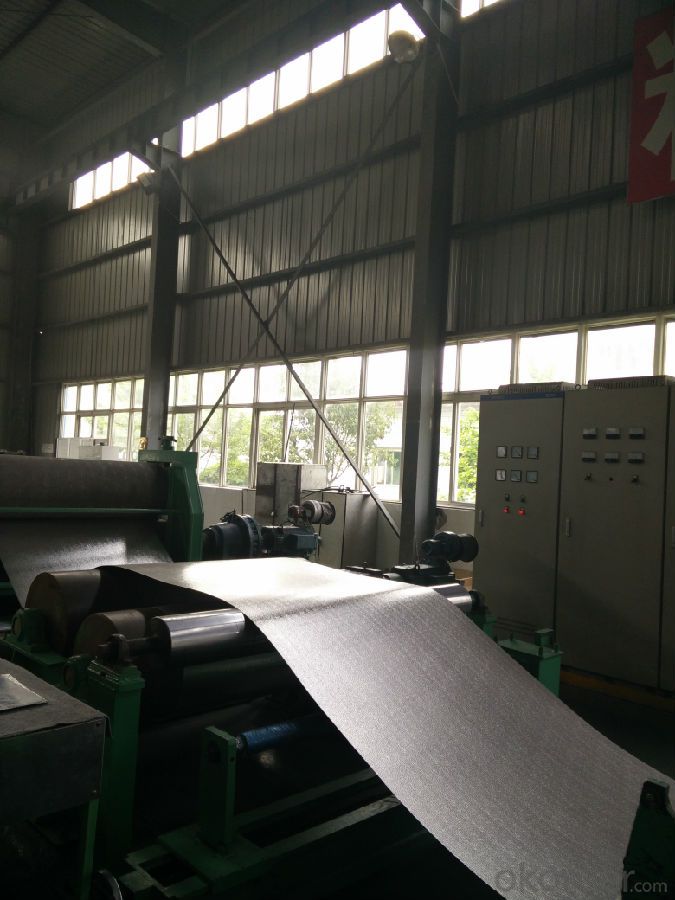
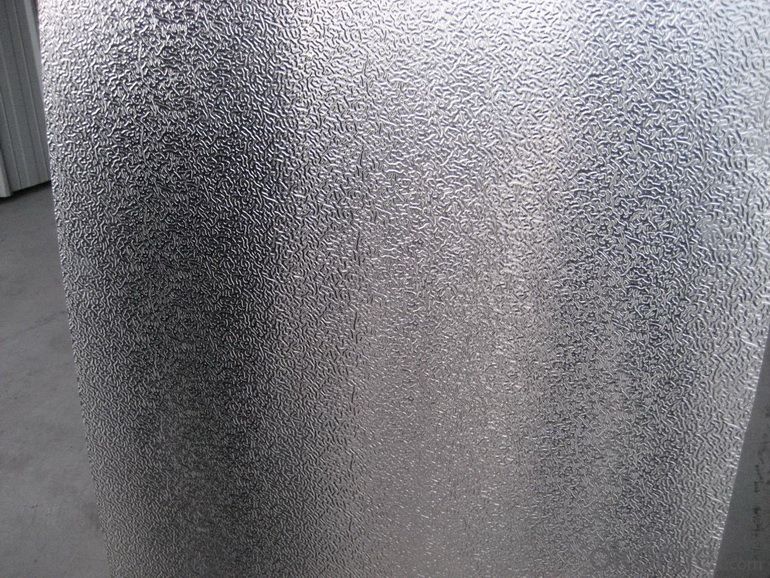
5.FAQ
We have organized several common questions for our clients,may help you sincerely:
① How about your company?
A world class manufacturer & supplier of aluminum coil and alloy blanks. Aluminum production base is comprised of 18 aluminum annealers, 10 coil and foil mills, 4 continuous production lines, 2 hot rolling production line and 3 prepainted lines.
Export 5000 tons per month to Asia, America and Middle East. Always do the best for our clients.
②Can you guarantee the quality of the products?
We are responsible for the quality of materials to get a long-term cooperation with clients in a reasonable period of time and we are glad to arrange and coordinate any third party inspection for you.
③What is the delivery time after purchase?
35 day after receiving client’s deposit or correct LC
- Q: Can aluminum coils be used for gutter systems?
- Yes, aluminum coils can be used for gutter systems. Aluminum is a popular material for gutters due to its lightweight nature, durability, and resistance to rust and corrosion. Aluminum coils are often used to form seamless gutters, which offer advantages such as fewer leaks and a more aesthetically pleasing appearance. Additionally, aluminum gutters are easy to maintain and can be painted to match the exterior of a building. Overall, aluminum coils are a suitable and commonly used choice for gutter systems.
- Q: What is the thickness range of aluminum coils?
- The thickness range of aluminum coils typically varies between 0.15mm to 4mm.
- Q: Is it appropriate to use a wire brush for cleaning an aluminum coil?
- <p>Using a wire brush to clean an aluminum coil is not recommended. Wire brushes can cause scratches and damage the surface of the aluminum, which can lead to corrosion over time. Instead, use a soft cloth or sponge with a mild cleaning solution to gently clean the coil. This will prevent any damage to the aluminum while effectively removing dirt and debris.</p>
- Q: What advantages does 0.1*100cm aluminum coil have? Is it suitable for the roof tiling? How is the anti-oxidation and anti-corrosion performance?
- It is seldom used as roof tiling because its performance is not as good as color steel panel and its cost is not cheaper than others.
- Q: This question asks about the various classifications of aluminum coil based on their properties and applications.
- <p>Aluminum coils are categorized into different grades based on their alloy composition and applications. The most common grades include 1000 series (99% pure aluminum), 3000 series (aluminum-manganese alloys), 5000 series (aluminum-magnesium alloys), and 6000 series (aluminum-magnesium-silicone alloys). Each grade has unique properties such as formability, strength, and corrosion resistance, which make them suitable for specific applications like construction, transportation, and packaging. The selection of the grade depends on the performance requirements of the end product.</p>
- Q: Is it possible to utilize aluminum coils in the creation of decorative objects?
- <p>Yes, aluminum coils can be used for making decorative items. They are lightweight, durable, and corrosion-resistant, making them an excellent choice for various decorative applications. Aluminum's malleability allows it to be easily shaped and bent into different forms, which is ideal for creating intricate designs. Additionally, aluminum can be anodized or painted to achieve a wide range of colors and finishes, enhancing its decorative appeal. Common decorative uses include outdoor furniture, lighting fixtures, and architectural accents.</p>
- Q: What does 1060 stand for in 1060 aluminum rolling?
- It means the aluminum content should be above 99.6%.
- Q: Can aluminum coils be used in the production of architectural panels?
- Aluminum coils have the capability to be utilized in the manufacturing process of architectural panels. Aluminum is a multifunctional material that is extensively employed in the construction sector because of its lightweight nature, durability, and resistance to corrosion. By rolling aluminum ingots into thin, flat sheets, aluminum coils provide a practical and effective means of producing architectural panels. Architectural panels, including aluminum composite panels (ACP) or solid aluminum panels, are commonly adopted as cladding systems for buildings. These panels serve both functional and aesthetic purposes by providing protection against the weather, insulation, and enhancing the overall appearance of the structure. Aluminum coils are implemented in the production of architectural panels due to their ease of forming and shaping into various designs, such as flat sheets, corrugated panels, or custom profiles. The coils can be cut to the desired size and then processed using various techniques, including bending, folding, punching, or welding, to create the desired shape and dimensions of the panels. Moreover, aluminum coils offer an extensive range of finishing options, such as anodizing, powder coating, or painting, which facilitates customization and improves the aesthetic appeal of architectural panels. These finishes not only provide a variety of color choices but also enhance the durability and resistance to weather of the panels. To summarize, the versatility, durability, and aesthetic options provided by aluminum coils make them a suitable choice for the production of architectural panels. The use of aluminum coils in the construction industry has gained popularity due to their cost-effectiveness and efficiency in creating high-quality panels that meet the functional and design requirements of modern architecture.
- Q: Can aluminum coils be used in chemical processing equipment?
- Yes, aluminum coils can be used in chemical processing equipment. Aluminum is known for its excellent corrosion resistance, making it suitable for use in many chemical environments. It is resistant to a wide range of acids, alkalis, and other corrosive substances. Additionally, aluminum coils are lightweight and have good heat transfer properties, making them ideal for applications where heat exchange is required. However, it is important to note that aluminum has limitations in certain aggressive chemical environments, such as strong acids like hydrochloric acid or sulfuric acid. In such cases, alternative materials like stainless steel or titanium may be more appropriate.
- Q: What are the methods to prevent rust formation on aluminum coils during storage and transportation?
- <p>To prevent rust on aluminum coils during storage and transportation, ensure that the coils are clean and dry before storage. Store them in a cool, dry place away from moisture and corrosive substances. Use protective wrappings or coatings to shield the coils from the environment. Maintain proper ventilation to reduce humidity. Avoid stacking the coils directly on the ground; use pallets or racks to keep them off damp surfaces. Regularly inspect the coils for signs of moisture or damage and address any issues promptly.</p>
Send your message to us
Lennox Embossed Aluminum Stucco for Air-Conditionary Coils
- Loading Port:
- Shanghai
- Payment Terms:
- TT OR LC
- Min Order Qty:
- 4 m.t.
- Supply Capability:
- 100000 m.t./month
OKorder Service Pledge
OKorder Financial Service
Similar products
Hot products
Hot Searches
Related keywords
